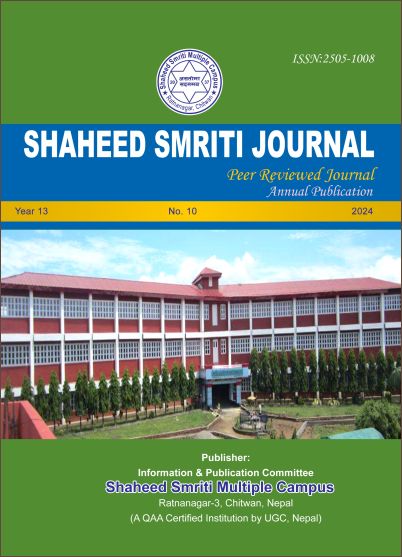Existentialism and the Theme of Sacrifice in August Strindberg’s Facing Death
DOI:
https://doi.org/10.3126/shaheedsmriti.v13i10.76812Keywords:
Existentialism, sacrifice, absurdity, alienation, modernity, Heidegger, tragedy, SartreAbstract
August Strindberg’s one-act play Facing Death serves as a profound exploration of existentialist philosophy, interrogating themes of sacrifice, alienation, and the absurdity of human existence through the lens of its protagonist, Monsieur Durand. Drawing on the theoretical frameworks of existentialist thinkers such as Jean-Paul Sartre, Albert Camus, and Martin Heidegger, this study examines how Durand’s self-sacrifice embodies the tension between autonomy and resignation, central to existentialist thought. Sartre’s concept of “bad faith” and Camus’s notion of the “absurd” provide theoretical tools for examining Durand’s struggle to assert meaning in a world marked by indifference and socioeconomic oppression. Heidegger’s ideas on “being-toward-death” further studies Durand’s confrontation with mortality and his ultimate act of sacrifice as both a rejection and an acceptance of his existential condition. The play’s depiction of financial ruin, patriarchal duty, and societal neglect highlights the interplay between individual agency and external forces, highlighting the paradoxes of existential freedom. By analyzing Durand’s journey as both a Christ-like martyr and a victim of modernity, this paper reasons that Strindberg’s work transcends traditional tragedy, offering a nuanced critique of the human condition and the ethical complexities of sacrifice. The findings show how Strindberg’s portrayal of Durand’s existential crisis resonates with contemporary debates on autonomy, responsibility, and the search for meaning in an increasingly fragmented world.




